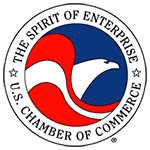Discover to Pay $200 Million Consumer Refund for Deceptive Marketing
Federal Deposit Insurance Corporation and Consumer Financial Protection Bureau Order Discover to Pay $200 Million Consumer Refund for Deceptive Marketing
WASHINGTON, D.C. – Today, the Federal Deposit Insurance Corporation (FDIC) and the Consumer Financial Protection Bureau (CFPB) announced a joint public enforcement action with an order requiring Discover Bank to refund approximately $200 million to more than 3.5 million consumers and pay a $14 million civil money penalty. This action results from an investigation started by the FDIC which the CFPB joined last year. The joint investigation concerned deceptive telemarketing and sales tactics used by Discover to mislead consumers into paying for various credit card “add-on products” – payment protection, credit score tracking, identity theft protection, and wallet protection.
The agencies jointly determined that Discover engaged in deceptive telemarketing tactics to sell the company’s credit card add-on products. Payment Protection was marketed as a product that allows consumers to put their payments on hold for up to two years in the event of unemployment, hospitalization, or other qualifying life events. Discover also sold its Credit Score Tracker, designed to allow a customer unlimited access to his or her credit reports and credit score. The third product was Identity Theft Protection, which was marketed as providing daily credit monitoring. Lastly, Discover’s Wallet Protection product was sold as a service to help a consumer cancel credit cards in the event that his or her wallet is stolen.
Discover’s telemarketing scripts contained misleading language likely to deceive consumers about whether they were actually purchasing a product. Discover’s telemarketers also often downplayed key terms and spoke quickly during the part of the call in which the prices and terms of the add-on products were disclosed. Because of the misleading language in the scripts and the actions of Discover’s telemarketers, consumers were:
- Misled about the fact that there was a charge for the products:Discover’s telemarketing scripts often used language implying that the products were additional free “benefits,” rather than products for which a fee would be applied to their accounts.
- Misled about whether they had purchased the products: The telemarketing scripts frequently suggested that consumers would not be charged for the products until after having a chance to review printed materials from Discover. Discover, however, did not provide consumers with the information until after Discover had already initiated the consumer’s purchase of a product.
- Enrolled without their consent: Discover representatives processed the add-on product purchases without some consumers’ consent. These consumers were then charged for the product on their Discover card.
- Withheld material information about eligibility requirements for certain benefits: Discover’s telemarketers typically did not disclose critical eligibility requirements for certain payment protection benefits, such as exclusions for pre-existing medical conditions and certain limitations concerning employment.
Enforcement Action
Under the order, Discover has agreed to:
- Stop deceptive marketing: Discover is required to institute certain changes to its telemarketing of these products that are designed to ensure that these unlawful acts do not occur again. Discover has also agreed to submit a compliance plan to the CFPB and the FDIC for approval, and to take specific corrective actions related to the products.
- Pay restitution to consumers who purchased the products: Discover will pay approximately $200 million in restitution to more than 3.5 million consumers who were charged for one or more of the products between December 1, 2007 and August 31, 2011. All consumers affected by Discover’s deceptive practices regarding these products, except those who affirmatively made use of Payment Protection, will receive restitution with amounts varying depending on when they purchased, and how long they held, the add-on products. All consumers will receive at least 90 days’ worth of fees paid (minus any refunds they have already received), with approximately 2 million consumers receiving full restitution of all of the fees they paid.
- Provide refunds or credits without any further action by consumers:Consumers are not required to take any action to receive their credit or check. If an affected consumer is still a Discover customer, he or she will receive a credit to his or her account. If an affected consumer is no longer a Discover credit card holder, the consumer will receive a check in the mail or have any outstanding balance reduced by the amount of the refund.
- Submit to an independent audit: Compliance with the restitution terms of the order will be assured through the work of an independent auditor, who will report to the CFPB and FDIC on Discover’s compliance with the joint CFPB-FDIC Consent Order.
- Pay a $14 million penalty: The CFPB and the FDIC imposed civil money penalties of $14 million. Discover will pay $7 million of that penalty to the U.S. Treasury and $7 million to the CFPB’s Civil Penalty Fund.
Source: consumerfinance.gov



